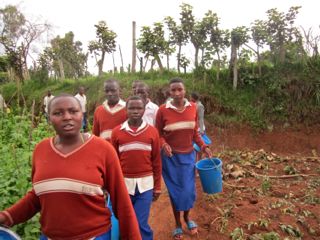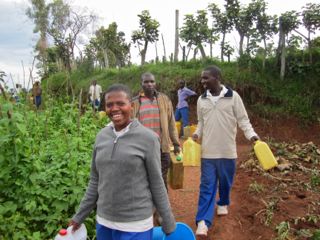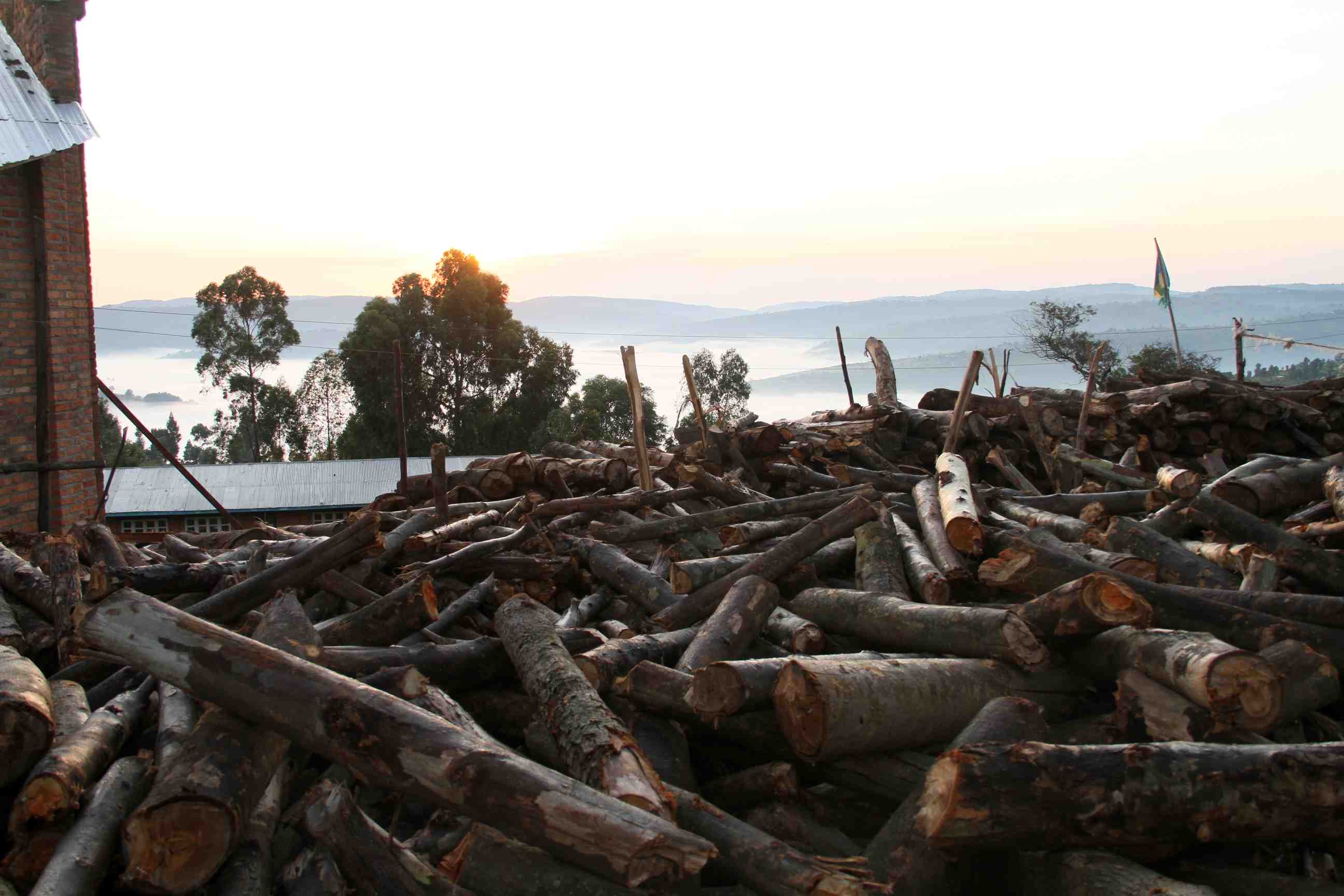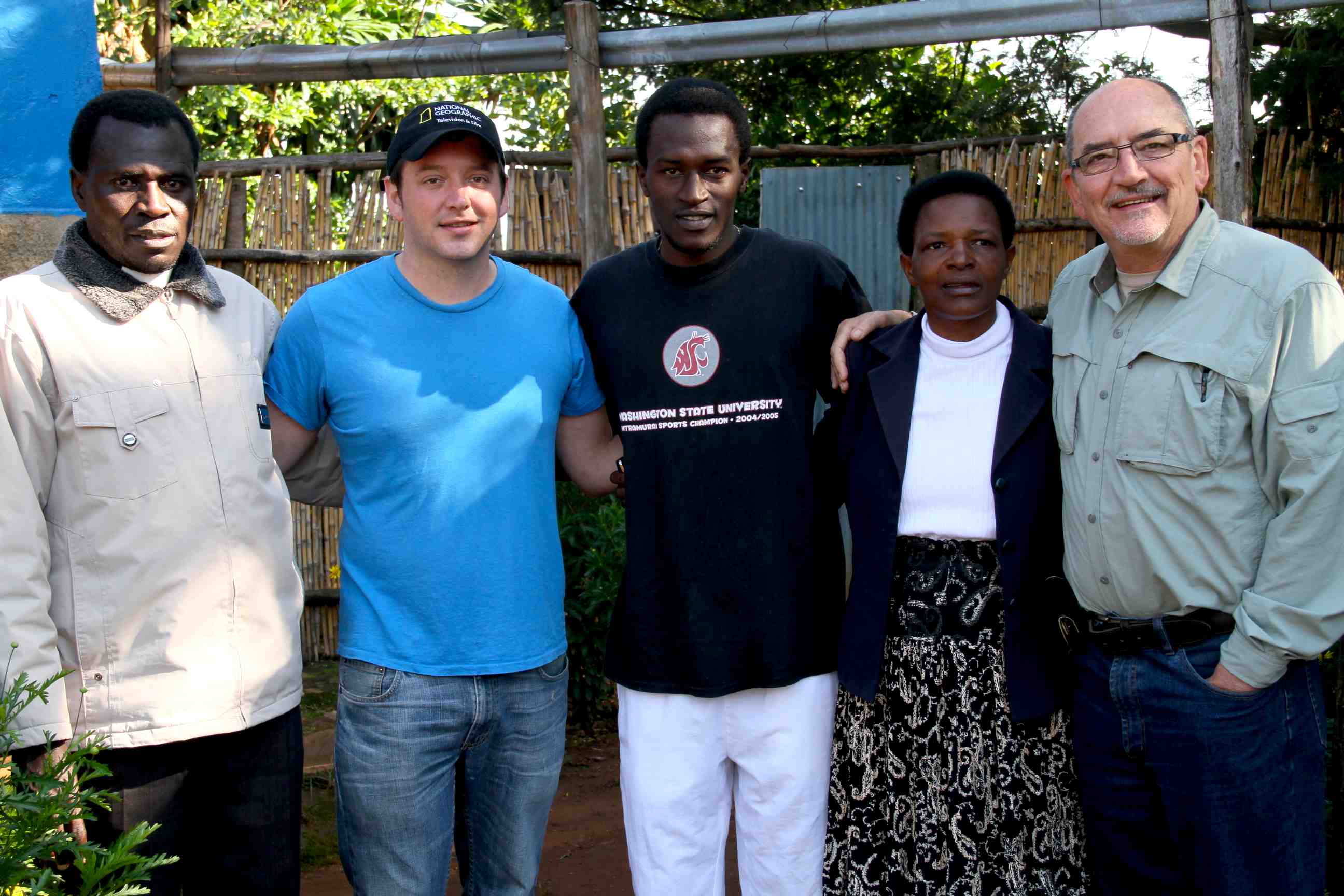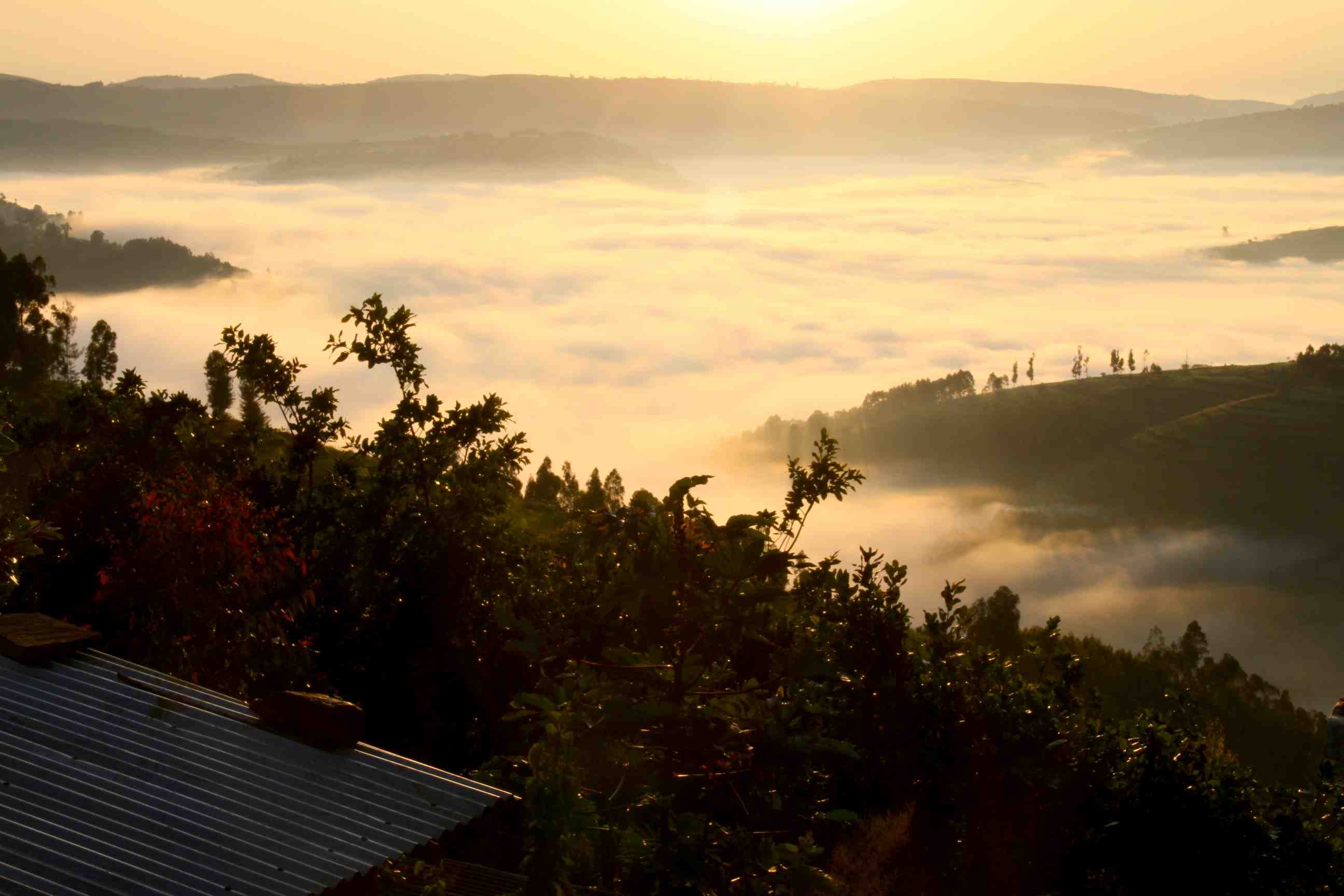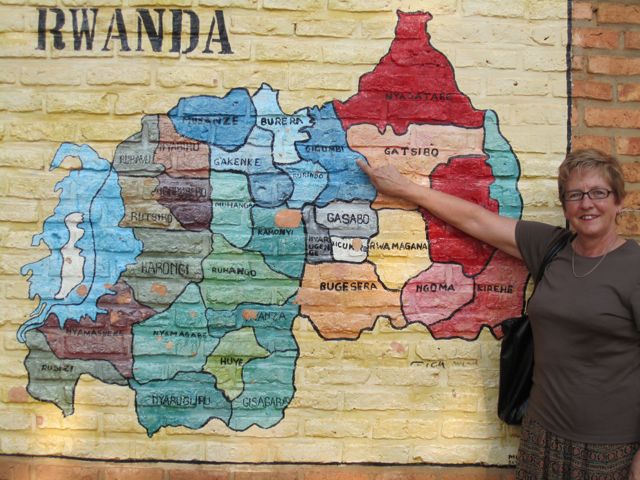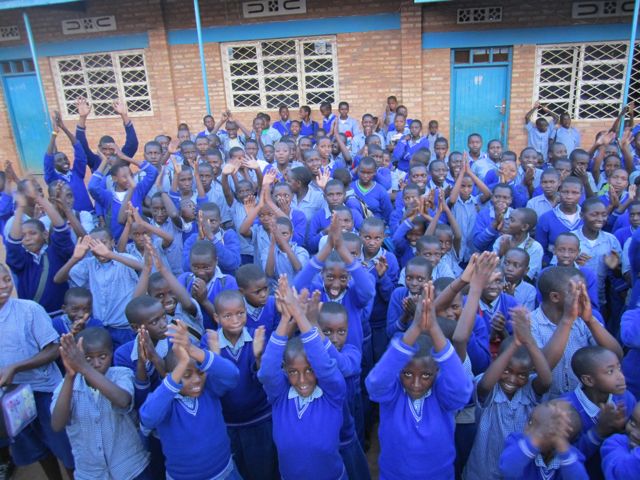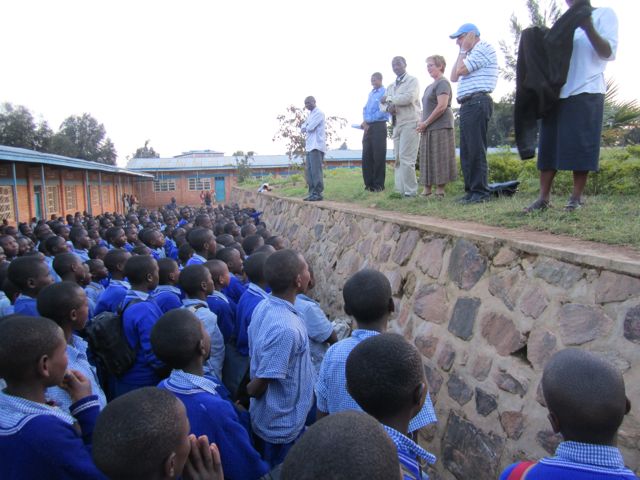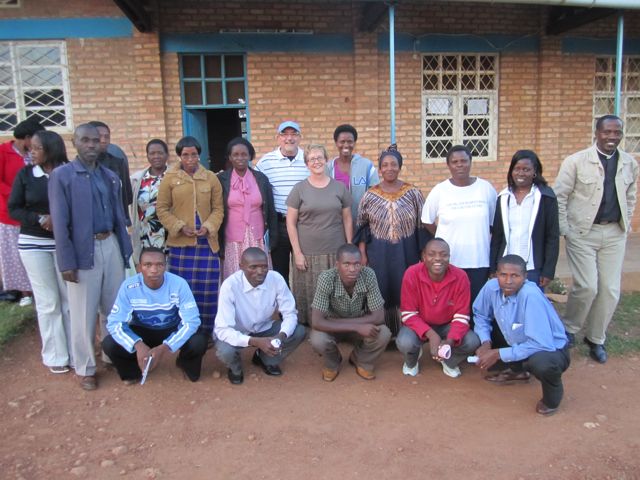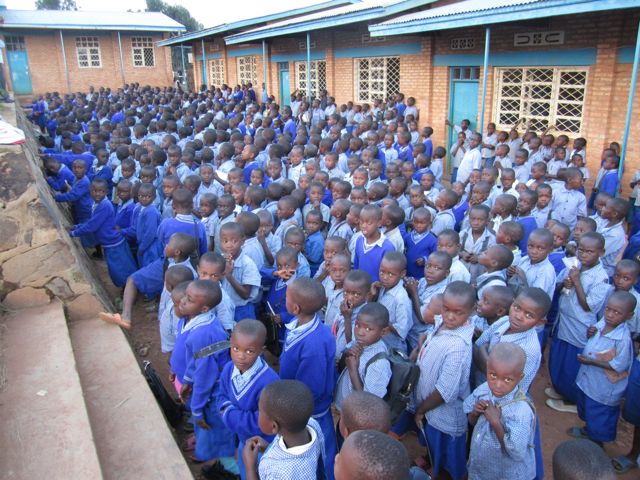Mukono Secondary School in Cyumba
The Mukono Secondary School in Cyumba is the highest performing school in the province and is known for its science and technology. The teachers are doing a remarkable job: they have increased the student population from 126 in 2004 to 520 in 2011. Eighteen teachers teach under incredibly difficult circumstances: they have a very inadequate library; the computer lab has only 10 computers; and a there’s a huge lack of text books. Toilets are outside, yet the students are eager to learn, proud of their school and willing to each walk four miles per day after school to collect water for the daily needs of the entire school. There are also no sport facilities.
Priority Project: Water for the children!
While the needs are enormous in several categories, the first project we would like to help them with is the great need for water. The goal is to install 10 tanks (holding 10,000 litres of water per tank) to provide water for 450 children who currently have to walk 3 km downhill to fetch water every day and then back uphill with their filled containers, i.e a 6km roundtrip for all the children — every day. The cost for the project is $29,000.
This is a major urgent need. Please consider being a part of make a huge difference in the lives of so many people for generations to come.
Primary School in Byumba
The needs in education are massive and by the time you read this, the first school we visited (Kigali) has already received enough pens and pencils from a donor to last them the rest of the year. Imagine this scenario: a student’s pen runs dry but class continues with him/her not being able to write; he or she doesn’t have a second pen or pencil. Celeste observed this several times. But now the teachers will have some supplies, and for this all are grateful.
Gerrit and Celeste were invited to meet with the minister in charge of primary and secondary education. During the meeting it became evident that the main focus has been on the city schools. Celeste shared her concern about the poor kids in the rural areas. Her observation: politicians speak politics; educators want to see all kids reach their potential, no matter where they live.
A visit to a primary school in Byumba (grades 1-6) seemed to support this observation (that the rural schools get very little attention and support). According to the headmaster, only 10% of his school’s 6th graders passed the national exam. He said it was directly related to lack of school text books, as well as the teachers’ lack of English skills and training. This school is part of the diocese in Byumba; they are pleading for teams to come and help the teachers. The school has on average 40 students per class and teachers need to teach 2 shifts per day: morning and afternoon. That means 80 students per teacher – a very heavy load to carry.






